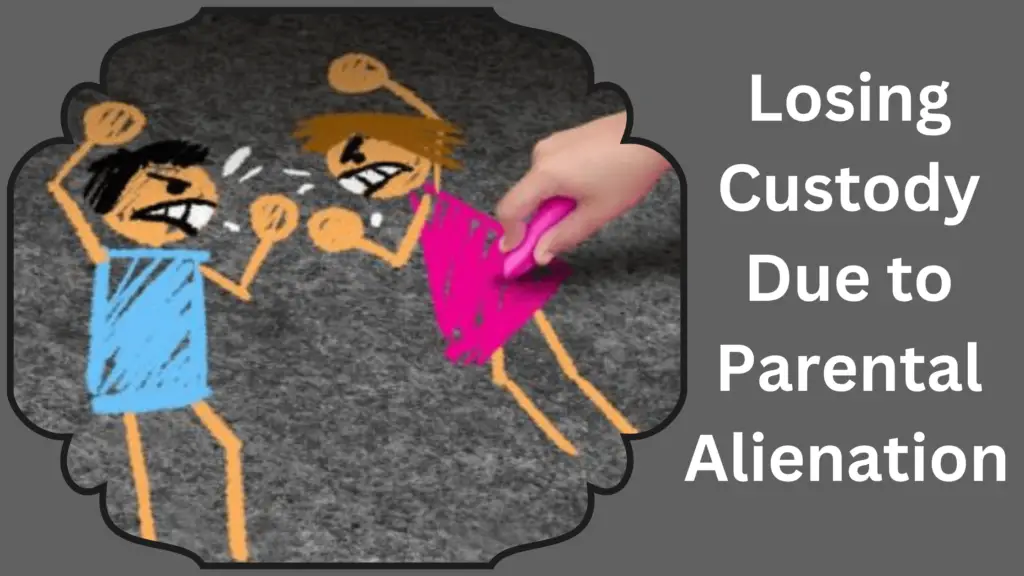Over the past years, the topic of parental alienation has gained attention. This is perhaps because of family issues which have been on the rise. Most people continue to search for a comprehensive exploration of the question: can a parent lose custody for parental alienation? Lucky, we have done extensive research on the topic.
Understanding Parental Alienation
Parental alienation surfaces as a troubling phenomenon, capable of wielding a deep-seated impact on the emotional equilibrium of children and the intricate weave of parent-child relationships. This unsettling conduct finds its roots in the deliberate manipulation of a child’s emotions and viewpoints by one parent, with a calculated objective of introducing a divide between the child and the other parent. This calculated manipulation extends its influence across a broad spectrum, spanning from the subtlest, almost imperceptible gestures to overt actions. When amalgamated, these actions collectively leave an indelible mark on the child’s psychological and emotional maturation.
The significance of recognizing the subtle signs of parental alienation cannot be overstated, for these signs often operate beneath the surface, evading immediate detection. Within this spectrum of behaviors lies the utterance of derogatory comments directed towards the other parent, the calculated erosion of the targeted parent’s authority, and the fostering of an environment that nurtures a skewed and unfavorable perspective of the parent in question. These seemingly innocuous actions, when aggregated over time, insidiously corrode the child’s foundation of security and stability.
The repercussions of parental alienation on the lives of children reverberate far and wide, making a profound impact that should not be underestimated. Children ensnared in this intricate web of manipulation often grapple with a whirlwind of emotional upheaval, wrestling with disconcerting confusion and an internal tug-of-war between their loyalties to both parents. This intricate experience often breeds an array of complex emotions, ranging from the burden of guilt to the fires of anger and the gnawing grip of anxiety. As these children navigate an emotional landscape not of their own making, they can find themselves lacking the tools to effectively traverse the terrain of their feelings and interactions in a way that promotes balanced and healthy development.
Can a Parent Lose Custody for Parental Alienation
So, can a parent lose custody for parental alienation? Yes, a parent can lose custody for parental alienation. Parental alienation is a form of emotional abuse that occurs when a parent intentionally turns a child against the other parent. This can be done through a variety of means, such as:
- Spreading lies and negative rumors about the other parent.
- Encouraging the child to refuse to see or communicate with the other parent.
- Trying to make the child feel guilty about spending time with the other parent.
- Isolating the child from the other parent.
If the court finds that a parent has engaged in parental alienation, it may order a change in custody arrangements to protect the child’s best interests. In some cases, the alienating parent may even lose custody altogether.
The court will consider a number of factors when deciding whether to award custody to a parent who has been accused of parental alienation, including:
- The severity of the alienation.
- The age of the child.
- The child’s wishes.
- The history of the relationship between the parents and the child.
- The impact of the alienation on the child’s emotional and psychological well-being.
Legal Implications of Parental Alienation
Legal Perspective on Parental Alienation
From a legal standpoint, parental alienation is taken seriously due to its detrimental effects on children and the complexities it introduces into custody disputes. Courts acknowledge that children benefit from having strong and nurturing relationships with both parents, and parental alienation directly contradicts this principle.
Read About: Judges View on Parental Alienation
Family Court Proceedings
When parental alienation is alleged in a custody dispute, the court’s role becomes pivotal in determining the veracity of the claims and safeguarding the child’s best interests. Courts rely on a multifaceted approach that involves examining evidence, considering expert testimonies from psychologists or therapists, and sometimes even involving the child’s input if deemed appropriate for their age and maturity.
Balancing Parental Rights and Child’s Best Interests
Judges are faced with a delicate balancing act between upholding parental rights and prioritizing the child’s best interests. While parents have the right to raise their child, this right is not absolute and should not infringe upon the child’s right to a meaningful and healthy relationship with both parents. This balance requires a nuanced understanding of the situation and a commitment to ensuring the child’s overall well-being.
Custody Determinations and Parental Alienation
Parental alienation plays a significant role in custody determinations. Courts assess the ability of each parent to foster a healthy relationship between the child and the other parent. A parent who engages in alienating behaviors may face repercussions in terms of the custody arrangements awarded by the court.
It’s important to dispel the misconception that a parent can lose custody solely due to allegations of parental alienation. Custody decisions are complex and multifaceted, often influenced by a combination of factors beyond just parental alienation. While consistent and well-documented instances of alienation can impact custody outcomes, it is usually severe and ongoing cases that might lead to significant modifications or even custody changes.

Factors Considered by Courts
Influential Factors in Custody Decisions
Courts consider a multitude of factors when making custody decisions. While parental alienation is a crucial consideration, it is just one piece of the puzzle. Factors such as the emotional and physical well-being of each parent, their ability to provide a stable and supportive environment, financial capabilities, and even the child’s own preferences (if appropriate) all play a pivotal role in the court’s decision-making process.
Importance of Evidence and Expert Testimonies
The presentation of concrete evidence is vital when raising parental alienation concerns in court. Text messages, emails, and witness accounts that substantiate allegations of alienation can provide invaluable insights for judges. Additionally, expert testimonies from psychologists, therapists, or social workers can provide a comprehensive understanding of the child’s psychological state and the extent of the alienation’s impact.
Mild vs. Severe Cases
Courts differentiate between mild and severe cases of parental alienation based on the intensity and persistence of the alienating behaviors. Mild cases may involve occasional negative comments or isolated incidents, whereas severe cases may encompass ongoing efforts to completely isolate the child from the targeted parent. The court’s response and potential outcomes are influenced by the severity of the situation.
Mild Alienation Case: In this scenario, a parent occasionally makes derogatory comments about the other parent in front of the child. The court recognizes the issue and orders both parents to attend co-parenting classes to improve communication and cooperation.
Severe Alienation Case: Here, a parent actively prevents the child from having any contact with the other parent, even going so far as to spread false accusations. The court intervenes by significantly modifying custody arrangements, imposing mandatory therapy sessions for all parties involved, and closely monitoring the progress toward reunifying the child with the targeted parent.
Addressing Parental Alienation
Strategies for Addressing and Preventing Alienation
Parents facing or witnessing parental alienation can take proactive steps to address and prevent these harmful behaviors. Open communication between parents can help mitigate misunderstandings and misinterpretations. Enrolling in co-parenting classes can provide valuable insights and strategies for effective co-parenting, ultimately reducing the likelihood of alienation.

Role of Professionals
Trained professionals, such as therapists, mediators, and parenting coordinators, play a pivotal role in addressing parental alienation. These individuals possess the expertise to facilitate productive conversations, develop comprehensive co-parenting plans, and offer strategies to rebuild fractured parent-child relationships. Their interventions can be essential in breaking the cycle of alienation.
The Power of Cooperation
One of the most impactful ways to address parental alienation is through a willingness to cooperate. Courts value parents who demonstrate genuine efforts to collaborate with the other parent for the sake of the child’s well-being. This collaborative approach showcases a commitment to putting the child’s interests first, which can significantly influence custody decisions.
Legal Procedures to Address Parental Alienation
Raising Concerns in Court
When faced with parental alienation, it’s essential to address the issue within the legal system. Consulting with an attorney who specializes in family law can provide you with valuable guidance and assistance in navigating the legal process. An experienced attorney can help you understand your rights, responsibilities, and the appropriate steps to take.
Gathering and Presenting Evidence
Building a strong case against parental alienation requires meticulous gathering and presentation of evidence. Save all relevant communication, document instances of alienating behavior, and maintain a thorough record of your efforts to address the issue. This evidence can serve as a foundation for your case in court.
Potential Outcomes
When parental alienation is substantiated, courts have various options for addressing the situation. These outcomes are tailored to the specific circumstances and severity of the alienation. Possible responses may include modifying custody arrangements to include mandatory therapy sessions for the child and involved parents, enrolling in co-parenting classes, or even supervised visitation to facilitate reestablishing the parent-child relationship.
Conclusion
While courts acknowledge the significance of parental alienation, custody decisions are multifaceted, incorporating numerous factors beyond this one issue. Throughout the process, the paramount consideration remains the child’s emotional health and overall stability.







